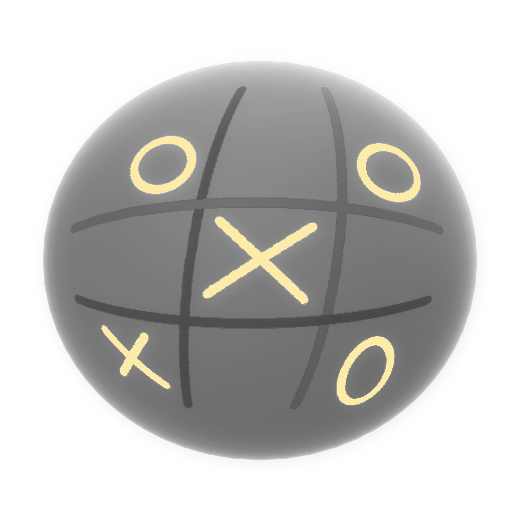Adi Shankara (789 CE), was an Indian philosopher whose teachings are based on the unity of the Atma and Brahman— non-dual brahman, in which brahman is viewed as nirguna brahman, brahman without attributes. Shankara travelled across the Indian subcontinent to propagate his philosophy through discourses and debates with other thinkers. His revival and spread of Advaita Vedanta of which he is known as the greatest revivalist. His works in Sanskrit concern themselves with establishing the doctrine of advaita (non-dualism). He also established the importance of monastic life as sanctioned in the Upanishads and Brahma Sutra. Shankara represented his works as elaborating on ideas found in the Upanishads, and he wrote copious commentaries on the Vedic canon (Brahma Sutra, principal upanishads and Bhagavad Gita) in support of his thesis. "O ocean of the nectar of illumined knowledge of the world Sastras; Thou hast revealed the treasure of the meaning of the great Upanisads. I meditate on thy pure Lotus Feet in my heart O Sankara Desika (Acarya), be thou my refuge." Chapter 1 1.1 Jijnasadhikaranam. Athato Brahmajijnasa Now, therefore, the enquiry into Brahman. - The purpose of Brahman Sutras, to connect with Brahman, the Absolute God. 1.2 Janmadyasya yatah The Origin of this world, from which... - The beginning is Brahman. The One without the second. 1.3 Sastrayonitvadhikaranam. Sastrayonitvat The scripture being the source of or the means of the right knowledge. - Only through knowledge, i.e. knowledge of all religions can one find the true Brahman. 1.4 Samanvayadhikaranam. Tattu Samanvayat That, but on account of agreement or harmony, because it is the main purpose. - All of the knowledge of the world merges into One God, the endless Brahman. 1.9 Svapyayat On account of merging in one's own Self. - Merging within Self, finding Brahman and find everything. 1.15 Mantravarnikameva ca giyate He who is described in the mantra portion, the very same, and also, moreover, is sung. - Reading and recitation of mantras (knowledge- Jnana) is essential and also singing (devotion- Bhakti). 1.20 Antaradhikaranam. Antasataddharmopadesat The being or person in the Sun and the eye is Brahman - Define relationship between Self (Atma, or Soul) and God which is ever perceiving. 1.22 Akasadhikaranam. Akasastallingat The word Akasa must be understood as Brahman - Akasha, ether, astral plain represent projection of Self (Atma or Soul) which is regarded as the highest experience, e.g. Anahata nada as sound of OM. 1.23 Pranadhikaranam. Ata Eva Pranah The word Prana must be understood as Brahman - The refined prana (yogi breath) is the energy matter is made up of and it expands. "Those who know it become immortal". 1.24 Jyoticarandhikaranam. Jyotiscaranabhidhanat The light is Brahman - The light, positive and good energy is Brahman. 2.11 Guhapravistadhikaranam. Guham Pravistavatmanau Hi Taddarsanat The dwellers in the cave of the heart are the individual Soul and Brahman - Once the individual Soul merges into Brahman through Self-Realization, they both enter the cave of the heart of the individual together. 2.18 Antaryamyadhikaranam. Antaryamyadhidaivadisu Taddharmavyapadesat The internal ruler is Brahman - The human body is complex. However, the energy of the person is Brahman. 3.1 Dyubhvadyadhikaranam. Dyubhvadyayatanam svasabdat The abode of heaven, earth etc. is Brahman (on account of Self) - The notion of heaven and earth, are defined in Brahma Sutra and Vedas and not just a new concept in Christianity and Islam. 3.8 Bhumadhikaranam. Bhuma Samprasadadhyupadesat Bhuma is Brahman - Bhuma is beyond the state of deep sleep, is Brahman. There are three states: waking, dream and deep sleep (where the Soul sleeps in Brahman). God or Brahman is beyond that sleep. 3.10 Aksaradhikaranam. Aksaramambarantadhrteh Aksara is Brahman - The Imperishable is Brahman because it supports all up to Universe. 3.14 Daharadhikaranam. Dahara Uttarebhyah The Dahara or the 'Small Akasa' is Brahman - In the city of Brahman, i.e. the body and in it the place, the small lotus, i.e. the heart and in that small ether (Akasa). Going into Brahman every day into deep sleep to a place Brahmaloka. 3.26 Devatadhikaranam. Taduparyapi Badarayanah Sambhavat The Devas also are entitled to the study of Vedas and to meditate on Brahman - Study of Vedas is a privilege. The role of Saints, Gurus, Devas in to get a person close to Brahman, become Self-Realized, i.e. understand own Atma or Soul. 3.42 Susuptyutkrantyadhikaranam. Susuptyutkrantyorbhedena The Self consisting of knowledge is Brahman - "He who is within the heart, among the prana, the person of light, consisting of knowledge". 4.14 Karanatvadhikaranam. Karanatvena Cakasadisu Yathavyapadistokteh Brahman is the first cause - First Brahman, from the Self sprang akasha, air. The cause of Creation is the Atma, the Soul. From the Self comes the breath (prana). Self created the earth, water and light. 4.19 Vakyanvayadhikaranam. Vakyanvayat The Atman or Soul to be seen through hearing etc. is Brahman and not Jivatma - We are all connected to Brahman, the large super consciousness. Some are closer to Him than others, but He hears everyone. Not everyone can hear Him. 4.23, 4.26. Prakrtyadhikaranam. Prakrtisca Pratijna Drtantanuparodhat. Atmakrteh Parinamat Brahman is both the efficient and the material cause. Created Itself by undergoing modification. - He created Himself by going through Self modifications, Self-Realization and Evolution. The life of a Yogi is similar. Going inwards and through Self-Realization finding Soul or Atma, hence finding Brahman. Chapter 2 1.30 Sarvopetadhikaranam. Sarvopeta Ca Taddarsanat Fully-equipped Brahman - "He to whom all actions, desires, all odors, all tastes belong, he who embraces all this, who never speaks, and is never surprised. He who desires what is true and imagines what is true. The great Lord is the Mayin, the Ruler of Maya." 3.8 Matarisvadhikaranam. Etena Matarisva Vyakhyatah Air originates from ether - Vayu is called deathless or immortal only in a figurative sense. Vayu (air) also has origin like Akasha. 3.10 Tejo'dhikaranam. Tejo'tah Tatha Hyaha Fire originates from air 3.11 Abadhikaranam. Apah Water is produced from fire 3.12 Prthivyadhikaranam. Prthivi Adhikararupasabdantarebhyah Earth is created from water What was there as the froth of the water, that was hardened and became the earth. The black color in fire is the color of Anna. Here, the reference to color expressly indicates that the earth is meant by 'Anna'. Black color agrees with earth. 4.1 Pranotpattyadhikaram. Tatha pranah The pranas have their origin from Brahman. - The five pranas: prana, apanas, vyana, samana and udana are the five principal pranas. 4.8 Pranasraisthyadhikaranam. Sresthasca The chief Prana has also an origin from Brahman. - "By its own law The One was breathing without the wind; there was nothing different from that or higher than that." Here the words 'was breathing' which denote the proper function of breath or Prana must have existed before Creation. Chapter 3 1.1 Tadantarapratipattyadhikaranam. Tadantarapratipattaur amhati samparisvaktah prasnanirupanabhyam The Soul at the time of transmigration does take with it subtle parts of the elements - The Jiva, individual Soul along with the Pranas, the mind and the senses leaves his former body and obtains a new one. Chakras contain the astral information for an individual Soul. 1.8 Krtatyayadhikaranam. Krtatyaye'nusayavan drstasmrtibhyam yathetamanevam ca The Souls descend from heaven have a remnant of Karma which determines their birth 1.12 Anistadhikaryadhikaranam. Anistadikarinamapi ca srutam The fate after death of those souls whole deeds do not entitle them to pass up to Candraloka (paradise) - The movement of persons doing evil deeds is now described. 1.13 Samyamane tvanubhuyetaresamarohavarohau Tadgati darsanat In the abode of Yama, having experienced of others who do not perform sacrifices. The ascent and descent. - Sinners suffer in Yamaloka and return to this earth. Yama says to Naciketas: 'The way to the hereafter never rises before an ignorant person who is deluded by wealth. This is the world - he thinks - there is no other; thus he falls again and again under my sway'. 1.15 Api ca sapta Moreover, the seven hells. - The temporary hells are Raurava, Maharaurava, Vahni, Vaitarani and Kumbhika. The two eternal hells are Tamisra (darkness) and Andhatamisra (blinding darkness). 1.23 Naticiradhikaranam. Naticirena Visesat It takes only a short time for the descent of the Soul - "He who has begun to descend will enter the mother's body (womb) before a year passes since starting, though wandering through different places". 1.27 Yoneh Sariram From the womb, a new body springs. - He attains a fully developed human body in the womb of the mother which is fit for experiencing the fruits of the remainder of works. 2.1 Sandhyadhikaranam. Sandhye Srstiraha hi The soul in the dream state - In the intermediate stage (dream) there is real Creation. 2.7 Tadabhavadhikaranam. Tadabhavo Nadisu Tat Sruteh Atmani Ca The soul in dreamless sleep - Without dreaming, deep sleep in the nerves (nadis or psychic currents), in prana, in the heart, in the self, in Brahman. 2.9 Karmanusmrtisabdavidhyadhikaranam. Sa Eva Tu Karmanusmrtisabdavidhibhyah The same soul returns from deep sleep - He has a sense of self-identity, having merged with Brahman in deep sleep. 2.10 Mugdhe' Rdhasampattyadhikaranam. Mugdhe' rdhasampattih Parisesat The nature of swoon - Unconscious state, not awake, but not deep sleep either, half dead, half alive. 2.27 Ubhayavyapadesattvahikundalavat The relation of the Highest Brahman to the individual soul of the serpent and its coils (kundalini). 2.38 Phaladhikaranam. Phalamata Upapatteh The fruit from Him only, for that is reasonable (with or without karma). 3.9 Vyaptyadhikaranam. Vyaptesca Samanjasam It is appropriate to specialize OM by the term 'Udgitha' - Because OM extends over the whole of the Vedas and appropriate, consistent and justifiable. 3.11 Anandadyadhikaranam. Anandadayah Pradhanasya Attributes like Bliss, etc. of Brahman have to be combined into One meditation 3.14 Adhyanadhikaranam. Adhyanaya Prayojanabhavat Self is higher than everything else - Higher than the senses are the objects, higher than the objects there is the mind. Higher than the Atman (Self or Soul) there is nothing. 3.27 Samparayadhikaranam. Samparaye Tarttavyabhavattatha Hyanye The shaking off of good and evil by the man of Knowledge occurs only at the time of his death 3.53 Aikatmyadhikaranam. Eka Atmanah Sarire Bhavat Some maintain the non-existence of a separate self besides the body on account of the existence of the self where a body is. 4.1 Purusarthadhikaranam. Purusartho'tah Sabdaditi Badarayanah Knowledge of Brahman is independent of sacrificial acts - The knowledge of Brahman is the chief object of pursuit of man, because the scriptures states so, thus holds the sage Badarayana. 4.52 Muktiphaladhikaranam. Evam Muktiphalaniyamastadavasthavadhrtestadavasthavadhrteh Liberation is a state without difference It is only one - "The Knower of Brahman becomes Brahman". Knowledge of Brahman itself is emancipation, i.e. liberation from the wheels of karma, good or bad. Chapter 4 1.13 Tadadhigamadhikaranam. Tadadhigama Uttarapurvaghayoraslesavinasau Tadvyapadesat Knowledge of Brahman frees one from all past and future sins - When that is realized, of the subsequent and the previous sins. Non-clinging and destruction. 1.14 Itarasamslesadhikaranam. Itarasyapyevamasamslesah Pate Tu Similarly good works do not affect the knower of Brahman 1.15 Anarabdhadikaranam. Anarabdhakarye Eva Tu Purve Tadavadheh Works which have not begun to yield results are alone destroyed by knowledge and not those which have already begun to bear fruits 1.19 Itaraksapanadhikaranam. Bhogena Tvitare Ksapayitva Sampadyate After enjoying the fruits of Prarabdha-karma the knower becomes one with Brahman - Having exhausted by enjoyment the other two works, whether good or bad (merit or demerit), becomes united with Brahman. 2.12 Pratisedhadhikaranam. Pratisedhaditi Cenna Sarirat The Pranas of the knower of Brahman do not depart at the time of death 2.15 Vagadilayadhikaranam. Tani Pare Tatha Hyaha The Pranas and elements of the knower of the Nirguna Brahman get merged in It at death 2.17 Tadoko'dhikaranam. Tadoko'grajvalanam Tatprakasitadvaro Vidyasamarthyatta- cchesagatyanusmrtiyogacca Hardanugrhitah Satadhikaya The soul of the knower of the Saguna Brahman comes to the heart at the time of death and then goes out through the Sushumna Nadi 4.1 Sampadyavirbhavadhikaranam. Sampadyavirbhavah Svena Sabdat The liberated soul does not acquire anything new but only manifests its essential or true nature - "Now this serene and happy being, after having risen out of this body and having attained the highest light, manifests itself by its own nature." 4.4 Avibhagenadrstatvadhikaranam. Avibhagena Drstatvat The released soul remains inseparable from the Supreme Soul - Aham Brahma Asmi, Tat Twam Asi, "where he sees nothing else" 4.10 Abhavadhikaranam. Abhavam Badariraha Hyevam A liberated soul who has attained Brahmaloka can exist with or without a body according to his liking 4.15 Pradipadhikaranam. Pradipavadavesastatha Hi Darsayati The liberated Soul which has attained the Saguna Brahman can animate several bodies at the same time 4.17 Jagadvyararadhikaranam. Jagadvyaparavarjam Prakaranadasannihitatvacca The liberated soul which has attained Brahmaloka (Heaven) has all the lordly powers except the power of Creation - His powers depend on God, hence the powers are not unlimited. However, the liberated Soul learns to walk the path of God, and let the Will of God runs through. Once reaching Brahmaloka, they do not return.


 Shop Ventures NFT
Shop Ventures NFT